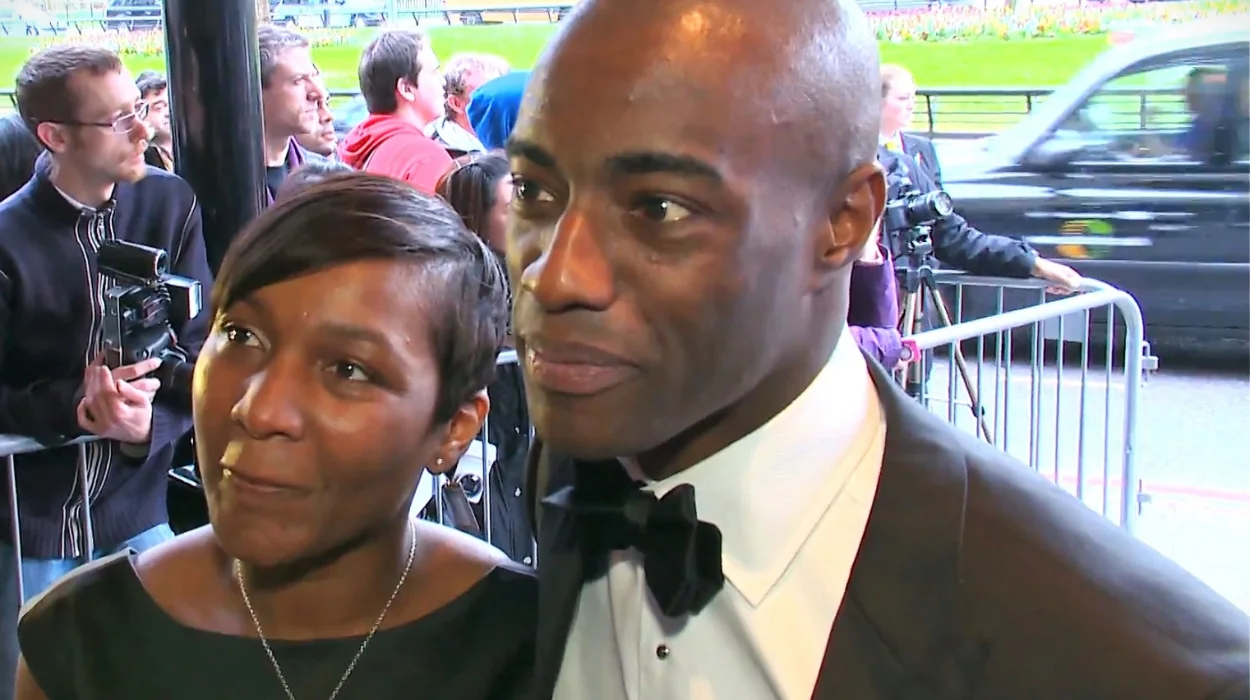Ealing (Parliament Politics Magazine) – Apprentice winner Tim Campbell returned to Ealing to honour outstanding young achievers at a student awards ceremony celebrating educational excellence.
As reported by Ealing News, the 20th annual Dr. John Roberts QC CBE Achievement Awards, which honor the accomplishments of young people of African and Caribbean heritage throughout the borough, will bring Tim Campbell, the inaugural winner of the BBC’s The Apprentice, back to Ealing this summer as a special guest.
This year’s ceremony, which will be held on July 12, 2025, at the DoubleTree by Hilton in Ealing Common, will include students, families, and school representatives in addition to Mr. Campbell, who first attended the awards at its inauguration in 2005.
Students enrolled in Ealing’s primary, secondary, and special education needs schools are now eligible to nominate.
Former champions include Tatianna Gailard, who is now a trained commercial pilot, and Bukayo Saka, a football player for Arsenal and England who won the sports category in 2017.
The awards, which are presented by the Acton-based charity Descendants and sponsored by the Ealing Council, honour the accomplishments of kids in Years 5 through 13 in a variety of areas, such as leadership potential, academic excellence, the arts, sports, and entrepreneurial energy.
Speaking to Ealing News, Margaret Noel, founder and director of Descendants, said:
“This year we mark 20 years of this education achievement award. Our very first award was hosted in 2005, and our special guest was Tim Campbell, winner of the first BBC Apprentice. We have invited him and he has accepted our invitation.
We have also invited the Mayor of Ealing, who has accepted our invitation.”
The following are the seven prize categories:
- Pupils that achieve academic success across the board
- Students that put in a lot of effort and succeed despite the odds
- Students that are exceptionally talented in the arts
- Pupils who are talented athletes
- STEM (science, technology, engineering, and math)-proficient students
- Pupils who possess entrepreneurial traits
- Students with the potential to be leaders in the future
In addition to academic achievement, modern ceremonies increasingly emphasize character qualities including respect, accountability, resourcefulness, integrity, and service.
The reasons for each student’s honor are frequently discussed by teachers and staff, which gives the awards greater significance and ties them to the school’s basic principles.
Reflecting on the awards’ legacy, Ms Noel added:
“This is a special event for Descendants. Over the years we have witnessed some exceptional students of African and Caribbean descent, both primary, special education needs, secondary and sixth form, being celebrated at our awards ceremony.”
He added that they have awarded young people like footballer Bukayo Saka, who has gone on to be a world-class footballer. They have celebrated a young woman who has become a commercial pilot.
They have celebrated young people who have excelled in their education, from Oxford, Cambridge, and as close as The University of West London. From becoming doctors, nurses, actors, singers and business entrepreneurs, our young people are striving and achieving, sometimes against many odds.
To nominate students, parents and guardians are urged to get in touch with their schools.
How has the student achievement awards ceremony evolved over the years in Ealing?
Awards ceremonies have historically emphasized athletics or academic performance, frequently rewarding a small group of pupils and unintentionally excluding individuals with talents in other fields.
In order to make recognition more inclusive and symbolic of a wide range of student qualities, numerous institutions and organizations have extended the categories over time to include leadership, character, community service, the arts, and other non-academic achievements.
Large, impersonal ceremonies that can foster hierarchies or feelings of inadequacy among students who are not acknowledged are becoming less common.
Some schools now place more emphasis on more individualized forms of recognition, such notes from teachers tailored to each student, smaller ceremonies, or recognition linked to particular learning progress and accomplishments.
This change seeks to guarantee that every student feels appreciated, promote a growth mentality, and recognize effort and progress.


